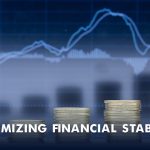
Fixed Rate and Variable Rate Mortgage Loans in the UAE: A Breakdown

To most people, the process of availing oneself of a mortgage/home loan in the UAE seems to get really entangled between the choices available about fixed-rate or variable-rate mortgages. An understanding of the differences, benefits, and possible drawbacks might make a huge difference in financial planning and decision-making. The article explains all the nitty-gritty of fixed rate and variable rate mortgages in the UAE, including how rates are offered based on the Emirates Interbank Offered Rate, or EIBOR. This provides a detailed guide to help you make a better choice.
Fixed Rate Mortgage Loans
Definition: A fixed rate mortgage loan is that which has an interest rate, which remains constant throughout the loan period, and so the monthly repayments never change.
Key Features:
Predictability: There is predictability in the monthly payments that, in most circumstances, may render budgeting very easy with a fixed-rate mortgage. House owners are shielded against any fluctuation of interest rates in the market.
Stability: The interest rate remains the same regardless of the economic conditions; hence, there is an assurance of financial stability during the financing period.
Loan Tenure: On average, fixed-rate mortgages are offered for tenures ranging from 1 to 5 years in the UAE. Once the fixed-rate period is over, normally it will turn into a variable rate mortgage on terms agreed upon with the lender.
| Pros | Cons |
| Budgeting: The fixed monthly installments will help in getting a perfect budgeting plan.
Protection: The rising interest rates would not affect the borrower. |
Higher Upfront Rates: Fixed-rate mortgages have higher initial rates than variable rate loans.
Reduced Flexibility: In the event of a drop in interest rates, a borrower will still pay this higher fixed rate and not take advantage of the reduction. |
Variable Rate Mortgage Loans
Definition: In a variable rate mortgage loan, the interest rate is periodically changed based on the benchmark rate, for example, Emirates Interbank Offered Rate.
Key Features:
Fluctuating Payments: The monthly payments may go up or down with a rise or fall in the benchmark interest rate.
Lower Initial Rates: Variable rate mortgages generally have lower initial interest rates as compared to fixed-rate mortgages.
Adjustment Periods: The rates may adjust at certain periods, usually monthly, quarterly, or annually, which would have been specified in the loan agreement.
| Pros | Cons |
| Potential Savings: One can receive lower initial rates with possible falls in interest rates over time.
Flexibility: If market rates go down, then so do the monthly payments. |
Uncertainty: Monthly payments can rise and thus may be difficult to budget.
Risk: Rise in interest rates may surge the amount of repayment drastically. |
EIBOR and Its Effect on Variable Rate Mortgages
EIBOR is the reference rate published daily by the UAE Central Bank and based on the average interest rate at which UAE banks will offer to lend unsecured funds to other UAE banks in AED money market.
How EIBOR Affects Mortgage Rates:
- Benchmark Rate: Variable rate mortgages interest rates are often linked to the EIBOR plus a margin which the lender adds on top of it. For example, EIBOR would be 2%, and the lender’s mortgage margin would be 1.5%. The mortgage rate in this case is 3.5%.
- Interest Rate Adjustments: With changing economic conditions, EIBOR is subject to change. And with that, the interest rates on a variable-rate mortgage fluctuate along with it—which then means so does the amount one pays each month over the entire lifetime of the loan.
- Transparency: A linkage of the mortgage rates to EIBOR gives transparency and synchronizes with the market conditions, giving borrowers an insight into the determination of their rates.
| Advantages of EIBOR-Linked Mortgages: | Disadvantages of EIBOR-Linked Mortgages |
| Market Reflection: The rates reflect the current economic conditions; in a falling interest rate environment, this might be quite helpful.
Potential Savings: When EIBOR falls, the rates for the borrower will reduce. |
Volatility: Sharp increases in rates in case of a rise in EIBOR may mean higher monthly payments.
Uncertainty: The variability may add to the complication in long-term financial planning. |
Fixed and Variable Rate Mortgages: A Comparison
- Interest Rate Stability vs. Flexibility:
– A fixed rate mortgage provides stability, predictable payments.
– A variable rate mortgage is flexible and potentially saves money, but the rates could go up.
- Economic Considerations:
– In rising interest rate environments, fixed rate mortgages safeguard against further rises.
– If interest rates were to fall or remain stable, there may be cost savings with variable rate mortgages.
- Conditions of Loan:
– Fixed-rate terms are usually short, and upon their completion, they could roll over into a floating rate.
– Market conditions and lender policies can drive the terms for variable rate facilities, usually requiring more active management by the borrower.
Choosing Wisely
Assess Your Financial Situation: Think about your long-term financial stability, the stability of your income, and your attitude toward risk. Fixed-rate mortgages will, therefore, be more appropriate for those persons who have a stable income and are looking for financial predictability. For variable-rate mortgages, it would probably be more appropriate to recommend them to those who have a stronger risk tolerance or who think that interest rates are going to stay flat or go down.
Market Predictions:
Keep yourself updated on interest rate trends and economic forecasts. If interest rates are likely to go up soon, then a fixed rate mortgage can bring more security. If the interest rate is likely to fall, a variable rate mortgage can be more beneficial.
Consult Experts:
Speak to mortgage advisors or financial planners who can give you personalized advice based on your financial condition and the market conditions at that time.
Conclusion
A choice between fixed and variable rate mortgages in the UAE is not one to be taken lightly, as it can affect your financial future. Underlining the main features, advantages, and disadvantages of each, coupled with considering the influence EIBOR has on variable interest rates, may help you make a mortgage choice in keeping with your financial goals and risk appetite. Be financially savvy, always keeping in mind professional advice on how to navigate the complexities of mortgage loans.



